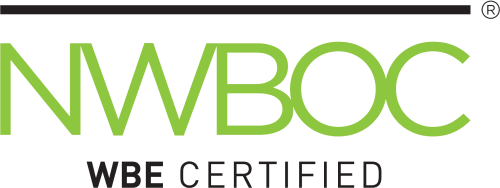Eagle Hill Consulting research finds government workers feel trusted to get the job done, but under more pressure to perform well
Arlington, VA., August 11, 2022 – As the pandemic has put immense pressure on government employees to deliver public services, new research finds that teleworking has improved team performance. Forty-six percent of government employees who telework – both fully remote and hybrid employees – say their team’s performance improved during the past two years. Only 35 percent of in-person government workers say their team’s performance has improved during the period, according to new research from Eagle Hill Consulting.
And as the trend for remote work continues among both federal and state and local governments, more than half of the government workforce reports teleworking, either in a fully remote (26 percent) or hybrid environment (24 percent). A substantially higher number of younger workers in government report working fully remotely (34 percent) as compared to mid-career (24 percent) and older workers (11 percent). Those working in-person are far more likely to be older workers (70 percent).
The findings are based upon The Eagle Hill Performance Management and Feedback Survey 2022, conducted by Ipsos from May 10-12, 2022. The nationally representative survey included 1,001 adults in the U.S. aged 18 and older who are employed full-time or part-time, including those who work for a government agency. The survey polled respondents on aspects of performance management and feedback.
The survey revealed good news when it comes to trust. Even with employees no longer tethered to a traditional workplace, nearly all government workers (92 percent) believe their manager trusts them to get the job done. This high level of trust is consistent for various work environments: remote at 93 percent, hybrid at 87 percent, and in-person at 93 percent.
But since the pandemic began, most government employees report feeling more pressure to perform well (64 percent) and prove their value (63 percent).
“The pandemic was transformational for the government workforce, accelerating what employees have long desired: more flexibility,” says Melissa Jezior, president and chief executive officer of Eagle Hill Consulting. “Our research is a clear signal that flexible work environments – both fully remote and hybrid approaches – can deliver performance results. And by providing government employees with more flexibility, government employers may have better outcomes when it comes to attracting and keeping workers at a time when public employers are really struggling to compete with the private sector.”
“While government employees have felt more pressure to deliver public services, workers are feeling more support from their supervisors during the past two years. The challenge going forward for government employers will be to sustain the positives that have emerged during the pandemic while finding new ways to best manage employee performance as the future of work continues to evolve,” Jezior explained.
The survey also found:
- When it comes to individual performance, about half of government workers (47 percent) report their individual performance has improved, slightly higher for remote (49 percent) and hybrid (50 percent) employees.
- Most government workers (82 percent) have a clear understanding of the next steps in their career path.
- Since the pandemic, most government workers (75 percent) have felt more committed to quality outcomes and more supported by their supervisor (70 percent).
- Asked what they need to be successful, government workers say it’s training and development (44 percent), clarity on expectations and goals (35 percent), clear instruction from their team leads (33 percent), more forums to gather feedback (27 percent), and more forums to engage with teammates (25 percent).
- Government employees say the top team performance challenges are clear goals and metrics (37 percent), sharing information across the team (35 percent), defining new ways to work together (32 percent), innovation and idea generation (27 percent), and equitable career opportunities (24 percent).
- Government employees say individual performance challenges include maintaining self-motivation (41 percent), handling increased workloads (38 percent), getting constructive feedback (29 percent), and finding time for strategic work/thinking (25 percent).
- Government workers say the skills their manager needs to make teams work better include empathy and understanding about employees’ unique needs (39 percent), clarity about team expectations for success (39 percent), the ability to engage with the team regardless of where they are working (34 percent), new technologies and tools to help build relationships across the team (32 percent), and providing employees with a better understanding of their role in the organization’s goals (32 percent).
- About half (46 percent) of government workers feel motivated in performance discussions with their manager, and only 19 percent feel surprised.
Eagle Hill Consulting LLC is a woman-owned business that provides unconventional management consulting services in the areas of Strategy & Performance, Talent, and Change. The company’s expertise in delivering innovative solutions to unique challenges spans across the private, public, and nonprofit sectors. A leading authority on employee sentiment, Eagle Hill is headquartered in the Washington, D.C. metropolitan area, with employees across the U.S. and offices in Boston and Seattle. More information is available at www.eaglehillconsulting.com.
Media Contact: Susan Nealon | 703.229.8600 | snealon@eaglehillconsulting.com | @WeAreEagleHill

